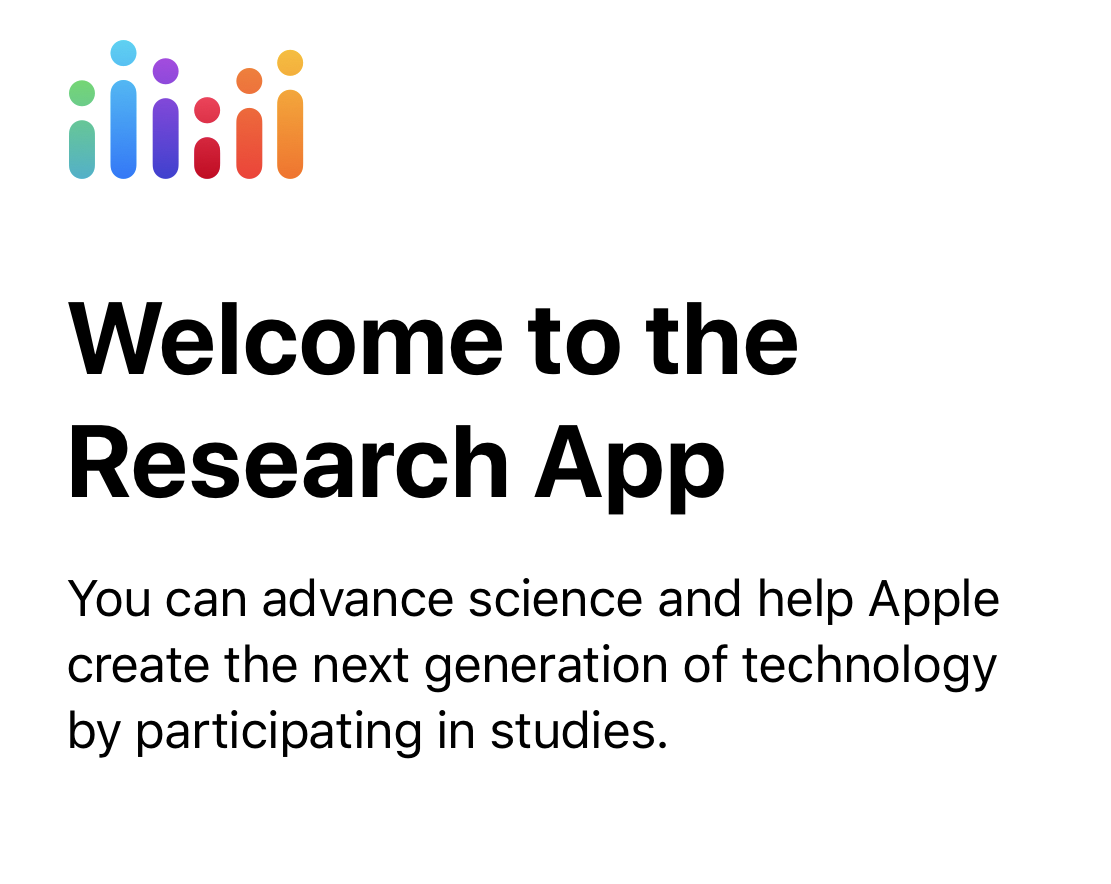Here’s how to give Apple your health details in the name of research
For those who feel altruistic, and want to feel they're doing their part to help their fellow man, Apple has now made that as simple as one download, with the launch of the new Apple Research app. Putting it on an iPhone or Apple Watch allows Apple users to opt-in to upload their data to one of three studies.
Read More:
- Apple bets big in health, with its own devices the key
- Will Apple replace your doctor?
- Apple rolls out new Health Records features with 39 hospitals joining at launch
Apple continues to issue studies through partnerships with medical experts including the most recent with Stanford researchers which found that the Apple Watch can detect Afib. But traditionally it's fairly complicated to join most medical studies. The Apple Research app allows anyone to join, as long as they live in the U.S, and have the app installed on their device.
Currently there are three studies: one that tracks hearings, one heart and movement, and one that follows a woman's health to look at infertility issues, for example. Users can currently opt-in to have this data tracked in the Health app, noting the audio level that their headphones are being played, for example, or a way to track their menstrual cycle.
The first study is called the Apple Women's Health Study, which is a partnership between the Harvard T.H. Chan School of Public Health, the National Institute of Environmental Health Studies, and Apple. The study will track a menstrual cycles to see any relationship they have to things including infertility.
The second study is the Apple Heart & Movement Study, partnership between the American heart Association, Bingham and Women's Hospital and Apple. The goal here is to find how activity and habits of wearers and users can lead to a healthier heart.
Apple Watch Series 4 (GPS, 44mm) - Space Gray Aluminium Case with Black Sport Band
The third study is the Apple Hearing Study, which will collect the user's exposure to sound, and how that may affect someone's hearing.
Apple promises, right in the app, that the data uploaded and shared with the company and the studies will not be sold, that you can leave the study at any time, stop sharing data when you choose, and have the studies you opt-in to join tell you how the data will be used.
If you join, the app will send notifications requesting information, updating you about a new study, and summarized what you've done throughout the week. And — a big thing to note — Apple makes it clear that the studies could last years — the Women's Health Study even decades — and you'll be asked to renew every two years.
Downloading the app
We had some trouble finding the Apple Research app in the App Store, even when searching for it directly by name, and going through the Health & Fitness section. We relaunched our iPhone X, which is running 13.3, and then opened the App Store again. Nothing. We found it only by going directly to the app through the App Store link.
You need to opt-in as you work through the app, but then signing up is as simple as clicking that you want to join.
"Today marks an important moment as we embark on research initiatives that may offer incredible learnings in areas long sought after by the medical community," said Jeff Williams, Apple's chief operating officer in a statement. "Participants on the Research app have the opportunity to make a tremendous impact that could lead to new discoveries and help millions lead healthier lives."
